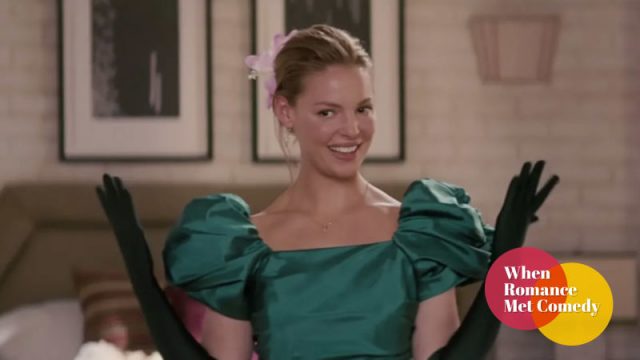On the 18th, Caroline Siede mounted a defense of Katherine Heigl and the film 27 Dresses over at the AV Club:
“Like My Best Friend’s Wedding, 27 Dresses is the rare rom-com that presents its female lead as someone who’s truly, deeply flawed, not just someone with a likable, quirky personality. I’ve always felt 27 Dresses is a modern day update on Jane Austen’s Sense And Sensibility, one that says that the older, emotionally repressed sister—not just the younger, flightier one—needs to change. Jane and Tess’ complex sister relationship is the emotional heart of the film and a key part in Jane’s journey to self-actualization. McKenna calls this storytelling model “and-a-man,” where a romance is part of the story but not the heart of it. Like a superhero saving the day and earning a love interest in the process, Jane earns her love story only after she does the work of learning to stand up for what she wants in life.”
That same day, Nathan Smith on the purging of films on Amazon Prime for the Daily Grindhouse:
“Since Amazon is not being forthright with these filmmakers on why their content is being cut from the site, multiple thoughts could be put forth on why. Is it that they don’t want content that they deem “low-rent,” or low-budget, especially given Prime’s ever-increasing popularity and awards-season prominence? Is it that these films don’t have verifiable sources to deem their legality on the platform itself? Is it worse that Amazon doesn’t have anyone to work with filmmakers when putting their content on or removing their content from the sites, or have someone sussing our rights? To that end, what are Amazon’s metrics on removing certain titles, but not others? Is there a budgetary threshold? Is there a ratings threshold? A numbers-viewed threshold? Hopefully, something will shake loose soon either way (steaming services notoriously decline to share their viewing data, only recently has Netflix started doing this). These filmmakers rely on streaming sites to both sell their films and get interest in their other works, so for a major platform to cut them off at the neck without a single word is damning in this day and age. Amazon owes them answers, and they owe their subscribers the same.”
Willa Paskin explored monoculture shows that aren’t talked about in the age of streaming, on the 23rd for Slate:
“Ratings are not just a reflection of how many people are watching a TV show. They are not just a piece of data about something that has already happened. They are also a piece of information that changes what happens, by defining whether we think of something as a hit, which has a knock-on effect on how much attention gets paid to that show, not just by other prospective viewers, but by the media. (Think how much more has been written on You now that we know 40 million people may have watched it.)”
Finally, on the 24th, Alan Sepinwall bid farewell to of The Unbreakable Kimmy Schmidt at Rolling Stone:
“But while Fey and Carlock could have drastically reshaped the series once they started producing it directly for Netflix, the later seasons are stylistically and tonally in line with how things began. They didn’t even start super-sizing the episodes; there’s an hour-long Sliding Doors homage in this final half-season, but it’s technically two episodes airing consecutively, which is something of a moot point when you’re bingeing. Kimmy Schmidt, like its beaming title character, managed to make it this far by staying true to its goofy, sincere instincts. True, it may be a show out of time and place, but it’s still alive, dammit. It’s a miracle.”

